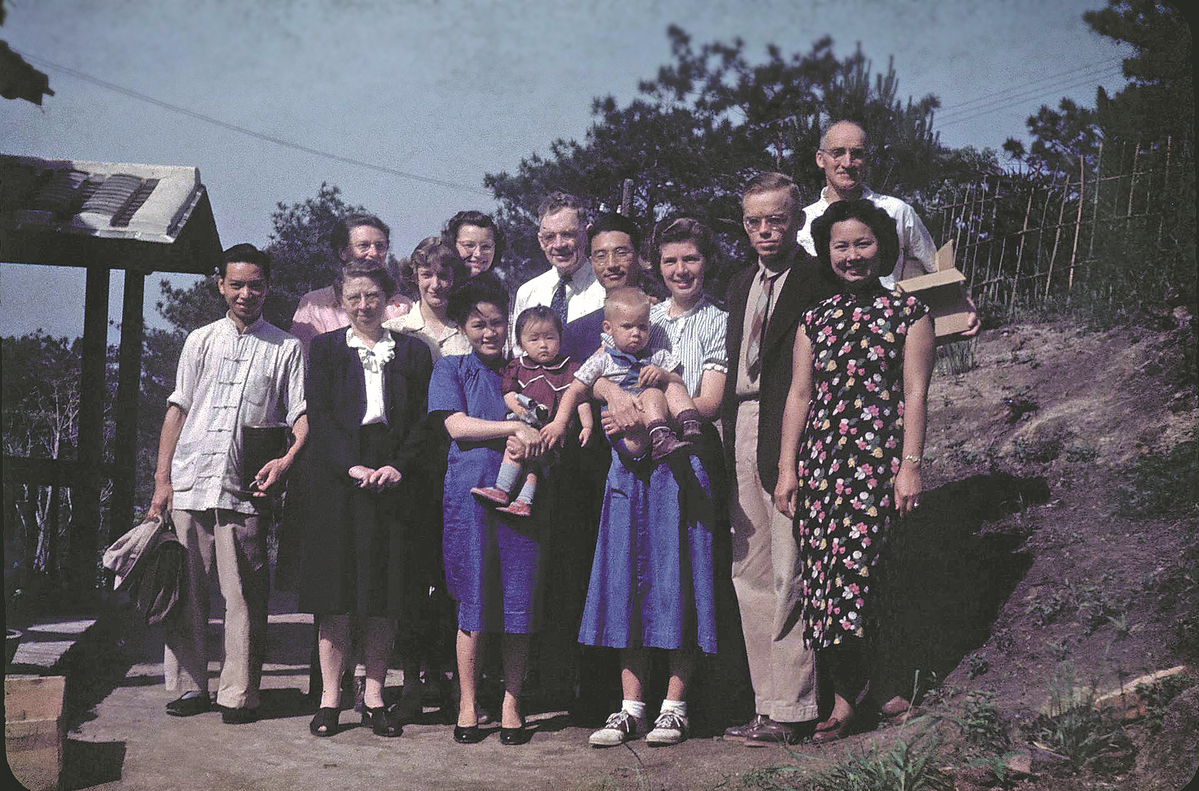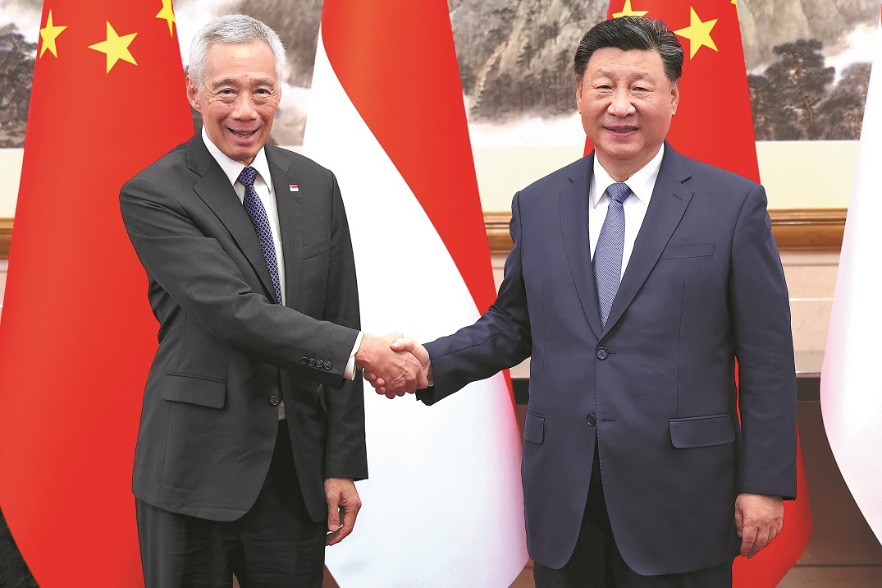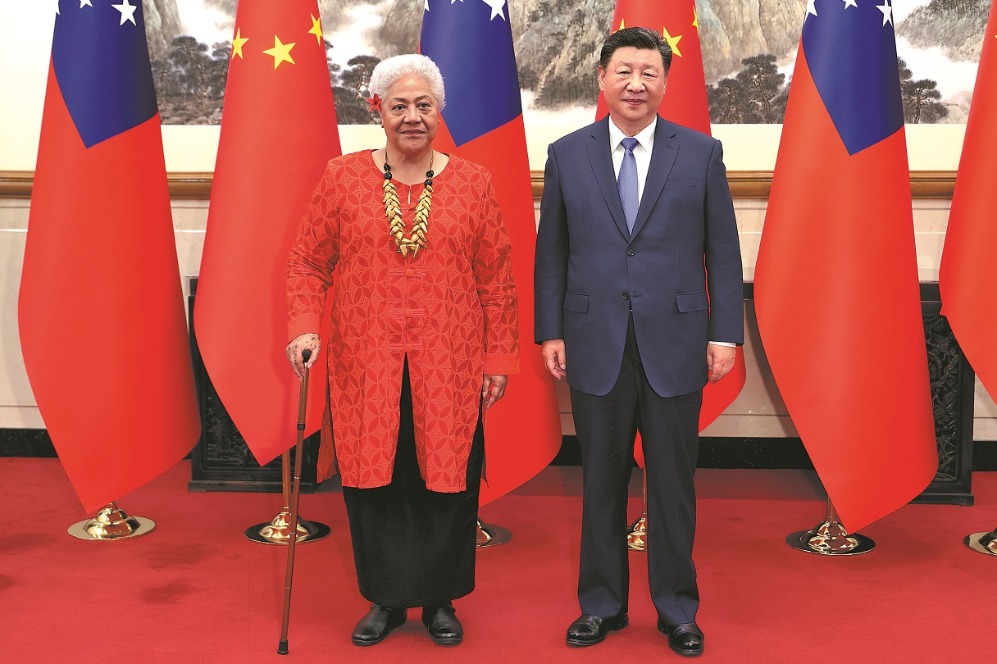Kuliang amity crosses borders, generations
Personal connection uncovers town's entwined histories between China, US

Editor's note: More than a century ago, a number of US citizens began living in Kuliang, a famous summer retreat in Fuzhou, Fujian province, joining thousands of other foreigners. They blended with local Chinese, working and living in harmony with them. This page looks at Elyn MacInnis and her family's deep connection to Kuliang, and the essence of the human spirit, unity, love and deep-rooted heritage.

Elyn MacInnis holds a pair of small slippers, about 5 centimeters long, with their red color slightly faded over time. Despite some wear on the soles, the insoles are still soft and elastic, sturdily constructed with no gaps at the seams.
The shoes were handcrafted by a Kuliang mother thread by thread in Fujian province for MacInnis' husband, Peter MacInnis, when he was a baby 75 years ago. Also, MacInnis' daughter had worn them, and Mac-Innis' newborn granddaughter would soon fit into the shoes.
"You can see her tiny, tiny stitches," Elyn, who is also the consultant for the Kuliang history and culture research organization, said as she caressed the shoes. "It's a wonderful memento, and also like a symbol of Kuliang spirit passing from generation to generation," she said.
The shoes journeyed across the ocean and time, symbolizing the family's connection and attachment to China, and especially Kuliang, the small town hidden in the mountains in the suburbs of Fuzhou, Fujian's provincial capital.
The MacInnis family has resided in cities including Nanjing, Beijing, Shanghai and Chongqing for almost 30 years since 1988. In the 1990s, Elyn impressed many Chinese students when she taught English with an engaging smile on a popular show aired by China Central Television.























